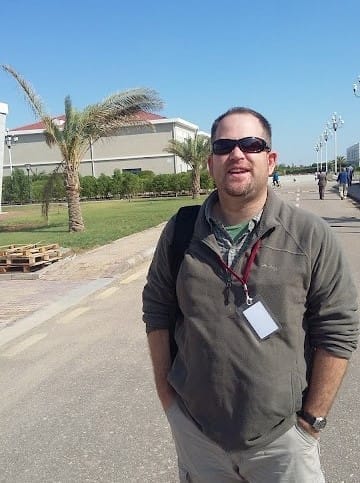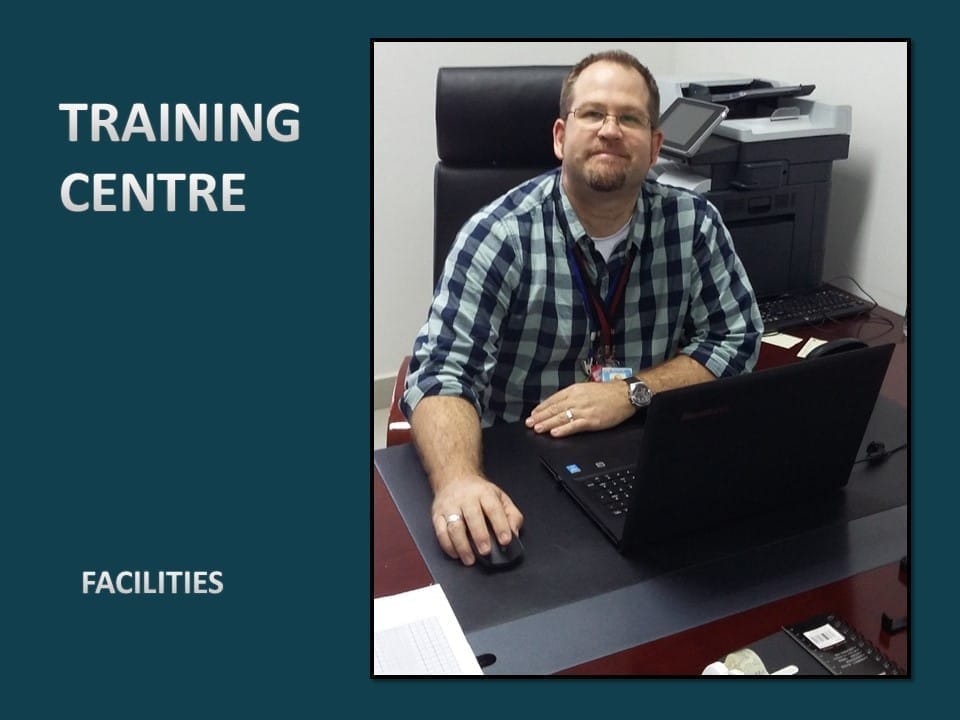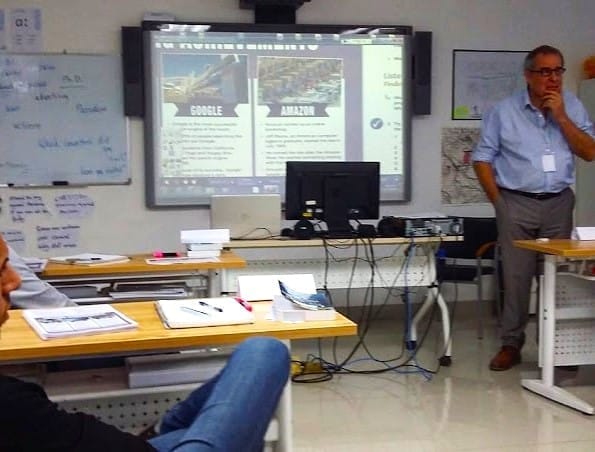Managing an English Teaching Project in Iraq: My Life at Halfaya Oilfield (2018)
Destination Iraq
In 2018, I found myself trading comfortable uncertainty in South Africa for the extreme certainty of an oilfield base camp in the Maysan Province of Iraq. What began as a simple teaching opportunity quickly turned into one of the most demanding, immersive, and unforgettable management roles of my life: Project Manager of an intensive English Language Training (ELT) program for 150 Iraqi engineers at the PetroChina Halfaya Oilfield.



🔄 From Teacher to Project Manager—Before I Even Arrived
It all started on a lazy Sunday afternoon in June when I received a message from a recruiter based in the UAE. They were urgently looking for English teachers for a 4-month training project in southern Iraq. At that point, I hadn’t had a stable income for some time after our Saudi chapter closed. I agreed to explore the opportunity. Originally contracted as a teacher, I was disqualified when the Iraqi client required that all teachers speak Arabic.
That might have ended the story, but instead, the contracting company—Haward Technologies Middle East—offered me something bigger: the role of program administrator. A few weeks later, I flew to Dubai to meet with Haward management and advise them on setting up a comprehensive ELT program—something they had little experience in. Curriculum, pacing plans, assessments, materials, staffing—I designed it all. After a long and bureaucratic visa wait, I finally touched down in Iraq in late October.



🛬 Arrival at Halfaya: A Closed World Begins
After a connection through Basrah and a private Gulfstream jet to Halfaya’s airfield, I arrived on base. I didn’t set foot off it for the next 49 days.
Halfaya Base Camp is a world unto itself—part Arab, part Chinese, and wholly sealed off from Iraqi society for security reasons. Surrounded by military fencing and protected by armed escorts, it functioned like a blend of international boarding school, oil refinery command center, and Olympic village (minus the fun).
Base camp had its perks: two canteens (Chinese and Arab), an indoor gym, a bird aviary, and even a 2km tartan walking track we used to decompress after long days. But comfort was relative. Accommodation was basic at best—trailer-style rooms with minimal furniture and poor sleep ergonomics. I stayed in Block F06. Power outages, flooding, earthquakes, flies, and mosquitoes added texture to the routine.









📚 Building the ELT Program from Scratch
The real challenge was educational. The project was to teach English to 150 Iraqi engineering trainees—graduates in mechanical, electrical, and production engineering—who were required to complete a foundation English phase before continuing their technical training in the oil and gas industry.
Our objectives:
Deliver General English and Technical English aligned with CEFR levels (Starter, A1, A2)
Use communicative, task-based teaching
Rotate two trainee batches every 2 weeks
Provide instruction 7 days a week, 8 hours a day
But logistics were far from smooth. Import issues delayed textbooks. Electricity was unreliable. Teachers couldn’t rotate out as planned due to visa issues—some were stuck for up to 10 weeks.
Despite these setbacks, we adapted. PetroChina helped us photocopy temporary resources. I equipped the classrooms with interactive whiteboards and Cutting Edge digital materials. My daily work included classroom observation, performance tracking, team coordination, writing reports, and even stepping in to teach when staff were ill or absent.









🧑🏫 Managing Trainers and Trainees
The training team was mostly Egyptian, per client request, since they could provide Arabic support. This conflicted with my own TEFL principles, which favor full English immersion. Still, the students—mostly male but also seven motivated female trainees—were focused and surprisingly culturally integrated. Unlike Saudi Arabia or Oman, there was no enforced gender segregation, just voluntary grouping at lunch.
We developed teaching continuity by assigning trainers to levels rather than switching groups, reducing their prep burden and increasing rapport with trainees. Given the punishing 7-day workweeks, this mattered.
🚴♂️ Life Outside the Classroom
To maintain sanity, I used a bicycle provided by Haward to get from the accommodation block to the Training Centre. It became my symbol of mobility and sanity. Robin Warner, a British colleague, and I would often walk the base’s tartan track at dusk, reflecting on the day, venting frustrations, and enjoying fleeting natural beauty like foggy mornings and spectacular sunsets over lakes.
The Chinese and Arab sections of base camp had vastly different atmospheres. The Chinese canteen was quiet and reserved—ideal for a peaceful meal. The Arab canteen was lively, emotional, and offered spicier, riskier cuisine (I switched to Chinese after a bout of the infamous "Halfaya bug").
I also fell ill with hypertension and was denied treatment at the base's world-class clinic since I was not a PetroChina employee. I was also refused an escort to a hospital in Amarah. It was a terrifying experience that underscored just how isolated and vulnerable we were.


















🛫 Coming Home, Changed
After nearly 7 weeks without a single day off, I returned to South Africa utterly exhausted. But also proud.
We’d built a full-scale ELT program under extreme conditions. We adapted, taught, bonded, argued, learned, and made something meaningful amid floodwater, flies, and failed transport pickups.
Most of all, I remember the resilience of the Iraqi people. Their warmth, humor, and courage stood in sharp contrast to the bleak security situation. I would do it again—not because it was easy, but because it mattered.
Soli Deo Gloria.









🇮🇶 Teaching & Coordinating in Iraq: Behind the Oilfield Gates. Read more here.....
In 2018, I spent four intense months at the PetroChina Halfaya Oilfield in southern Iraq, managing and delivering an English language training program for over 150 Iraqi engineering trainees. My role involved far more than teaching—I was responsible for academic planning, trainer recruitment, daily operations, and liaising between Iraqi learners and Chinese management, all while working seven days a week in a secure desert compound.
From delayed deployment and cross-border logistics to cultural mediation and resource coordination, this project stretched every skill I had. I documented the experience on my website here:
👉 edumaxsolutions.weebly.com/iraq
You can also read a personal reflection on the experience here:
👉 mygracedjourney.blogspot.com – Working in Iraq 2018
💻 Going Fully Online: Teaching with Skyeng
After completing the Iraq project, I transitioned fully to online teaching, joining Skyeng, one of Europe’s largest virtual English schools. Since then, I’ve taught thousands of lessons to Russian corporate adults, focusing on Business English, General English, and industry-specific communication skills.
The move online allowed me to work with professionals from leading companies across tech, finance, and logistics—helping them improve fluency, confidence, and global workplace readiness, all from my remote classroom.

HEY, I’M HENRY
Hi, I’m Henry Lilienfield, a TEFL veteran with teaching experience across China, Taiwan, Oman, Saudi Arabia, Iraq, South Africa, and online. With a law degree, two post-grad qualifications in Education Management and Development Studies, and a Level 5 TEFL Diploma, I bring deep knowledge and a practical approach to everything I teach—whether it’s English lessons or how to start your own online teaching business.



JOIN MY MAILING LIST
© Henry English Hub 2025 -www. henryenglishhub.com



